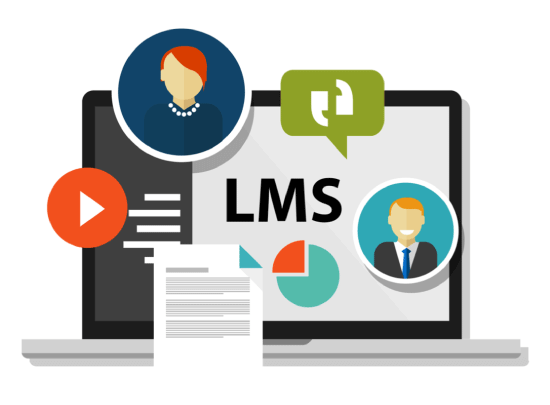What is the Full Form of LMSLMS: Learning Management SystemLMS stands for Learning Management System. From the name itself, it is clear that it is a system which helps manage all the things related to learning. Learning Management System (LMS) is a kind of software that falls in the learning management software category. This software is developed keeping in mind the benefits of teachers and students. There are some other systems, such as School Management Systems and College Management Systems, and there is very little difference between these two systems and Learning Management Systems (LMS). 
The school management system and college management system were developed by keeping in mind the administration of the college and schools, and they are mainly designed for administrative purposes only. A Learning Management System is primarily web-based software, sometimes desktop-based, and is connected via LAN (Local Area Network) or the Internet. Additionally, on the LMS, teachers and students share everything about learning content. For example, teachers share exercises, study materials and other things. At the same place, students share and submit their exercises and doubts and receive the results on the LMS for the related activities they have raised. On the LMS, all the recordings of the live lectures, along with other videos for learning, are made available for the students. The students can access all these on the learning management system anytime. The government of India has also directed the colleges to set up their own LMS, and soon it will be coming into force. The learning Management System is the future of Indian education and should be accepted and implemented by schools and colleges for a better quality of education. It helps teachers and students to accomplish their educational objectives from anywhere, anytime. Advantages of Learning Management System1. Interoperability It is a product or system feature that enables the respective product or system to work efficiently with other products or systems. It means that LMS is not an absolute system, and if you want some extra report and API to integrate into the LMS, then it can be quickly done. In simple terms, the LMS can be customized according to the feedback received by the users of the LMS. 2. Accessibility The users of the LMS can access it through any device like computers, laptops, mobiles and tablets. It automatically screens the appropriate version for the user's respective device. 3. Friendly Interface The interface of the LMS is also user-friendly, which helps its user learn without difficulty. 4. Assessment and Reports The LMS helps the administrator and the teachers track and review their training program to check if it is effective and enables them to modify their training and learning accordingly. 5. Support Services LMS offers different types of support services to its users. It includes online discussion forums, toll-free services, and extra-cost services. 6. Collaboration with Social Media Tools Most of the LMS approaches are now collaborating with various social media platforms, which help its users to connect with their peers using different platforms. 7. Fun Learning LMS usually has the facility to offer educational games to its users through which they can learn while having fun. Admins and teachers can create specific games like quizzes to encourage and motivate learners. 8. Localization The LMS can be created so learners from different places and languages can learn and use LMS without any barriers. 9. Artificial Intelligence LMS these days is also equipped with Artificial Intelligence (AI), which helps the learner to get personalized suggestions and learn based on past data or interests. Different Modes of Learning Management SystemsThe LMS is divided into different modes based on their method of deployment. The most widely used ways of LMS are listed below: Cloud-based LMS, which are cloud-based, are hosted on cloud-based databases, and the users of the LMS can access it online from anywhere using the credentials given like id and password. It is based on the Software as a Service (SaaS) business model. Self-hosted In this kind of LMS, users must pay for any updates and maintenance regularly. But the users can also customize the software according to their needs. Usually, in the case of a self-hosted LMS, the users are required to download the software first to use it. Desktop Application The LMS, which is based on the desktop application, can be installed on the desktop just like any other desktop application. Not only this but this kind of LMS can be accessed through multiple devices. Mobile Application Mobile application-based LMS are straightforward to access as they can be accessed by the user's mobile and also helps the users track their learning activity easily using their mobile phones. Other Modes of LMSSome other modes of LMS are based on their pricing. These modes of LMS are listed below: Freemium- In this kind of LMS, the users are allowed to access all the basic features of the LMS without any charges but to access some advanced features of the LMS, the users are required to pay some fee. Subscription- This type of learning management system (LMS) is not free-to-use as the users are required to pay a fixed amount after a specified period to continue using the features of the LMS. As it is not free and is entirely subscription based, the users are granted all the advanced features for using it once they have paid for it. Licensing- In this learning management system, individuals and/ or any organization are required to pay an amount as annual fee for the LMS and then they are required to pay some extra cost so that they can be granted lifetime access to the LMS. Key Benefits of the Learning Management System
Next TopicFull Form
|
 For Videos Join Our Youtube Channel: Join Now
For Videos Join Our Youtube Channel: Join Now
Feedback
- Send your Feedback to [email protected]
Help Others, Please Share










